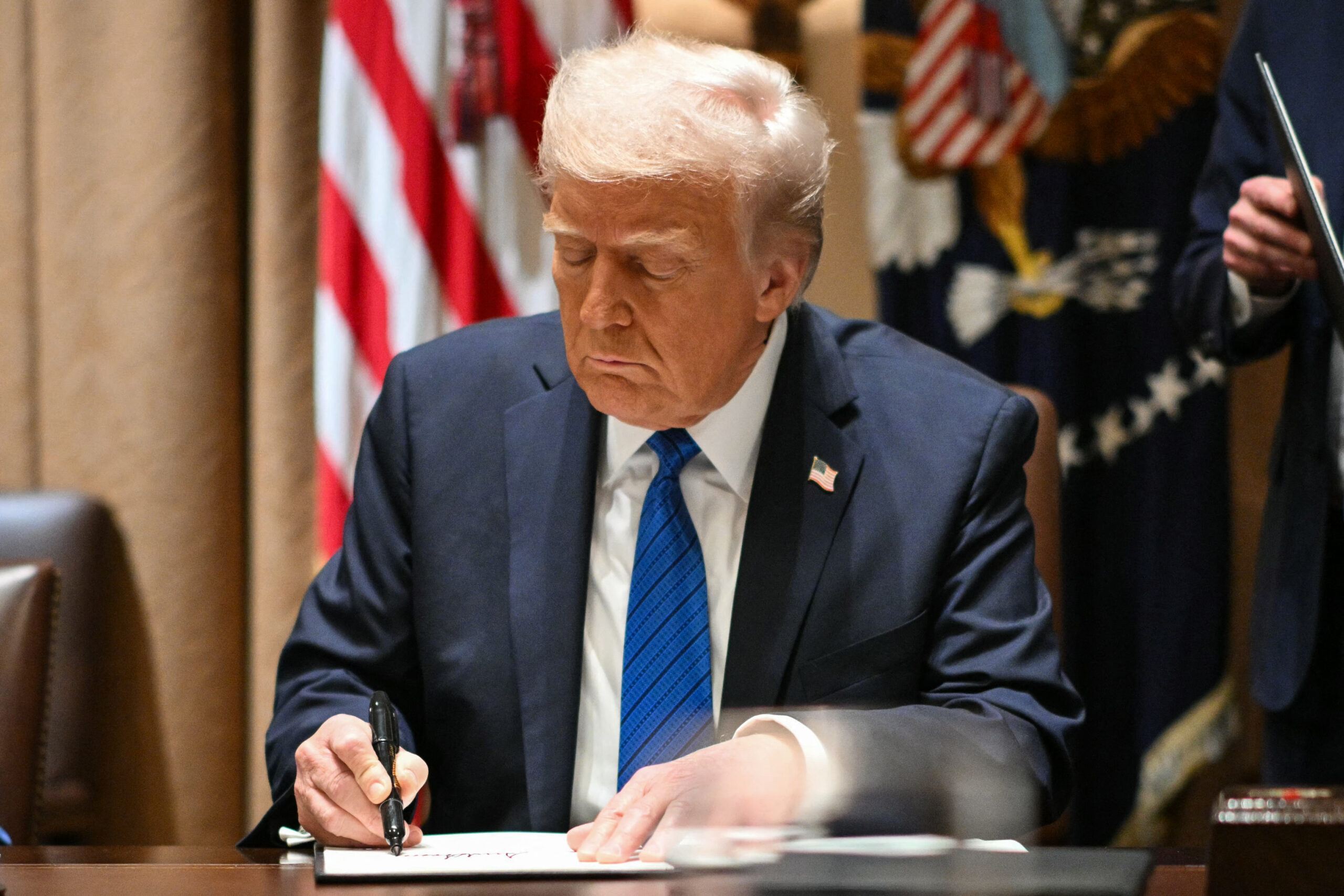
by
MANDEL
NGAN/AFP
via
Getty
Images)
For
those
of
us
dinosaur
lawyers
or
students
of
modern
American
history,
that
was
how
the
House
Un-American
Activities
Committee
(HUAC)
grilled
witnesses
whom
it
suspected
of
possibly
being,
well,
un-American
during
the
witch
hunts
(yes,
Salem
was
not
the
only
one)
of
the
late
1940s
and
1950s.
Using
my
Wayback
Machine
(apologies
to
Mr.
Peabody),
in
the
early
1950s,
a
group
called
the
Hollywood
Ten
defied
HUAC
and
refused
to
answer
the
question
of
whether
they
were
then
or
had
ever
had
any
association,
however
brief,
with
the
Communist
Party.
For
their
refusals,
they
were
imprisoned
and
blacklisted
for
decades.
But
others
named
names
to
save
their
own
skins
and
careers.
Today,
the
DEI
ban
is
operational.
Haven’t
women
and
minority
lawyers
been
chosen
on
merit,
that
we
were
the
best
candidate
for
the
particular
job?
It
wasn’t
just
that
we
had
the
credentials,
the
pedigree,
the
knowledge,
the
understanding.
Also
(and
I
don’t
think
that
people
chat
about
this
in
the
context
of
DEI
but
perhaps
they
should),
the
emotional
intelligence,
the
best
EQ
to
connect
with
workplace
colleagues
and
the
best
to
connect
with
the
clients,
both
present
and
future.
(By
the
way,
isn’t
it
ironic
that
March
has
been
Women’s
History
Month,
while
February
was
Black
History
Month.
What
do
you
think
will
happen
to
those?)
How
do
we
feel
now
knowing
that
we
may
have
only
been
tokens,
that
the
best
qualified
candidate
for
the
particular
position
was
obviously
a
white
man
who
has
been
deprived
of
his
rightful
place
in
the
legal
hierarchy?
How
do
we
feel
knowing
that
while
all
of
us
tried
our
best
to
do
our
best
work,
the
best
work
(also
known
as
lucrative
work)
was
done
and
should
have
been
done
in
the
men’s
locker
rooms,
on
the
golf
courses,
in
venues
that
were
previously
men-only
worlds
and
may
be
again?
How
does
it
feel
to
feel
like
the
outcast,
the
excluded
one,
once
again?
Been
there,
got
the
T-shirt.
And
what’s
worse
is
the
not
knowing,
the
not
knowing
whether
we
were
hired,
promoted,
or
whatever
on
the
basis
of
merit,
or
whether
we
were
hired,
promoted,
or
whatever,
merely
to
check
some
boxes
on
various
forms
submitted
to
various
government
agencies
at
various
times.
Depressing?
For
women
and
minority
lawyers,
it
haunts
and
plants
seeds
of
doubt.
Was
I
truly
the
best
candidate?
Why
was
I
selected
over
others?
Why
was
I
not
selected
over
others?
Hiring
should
not
be
just
an
algorithm.
It
wasn’t
in
the
years
when
I
was
being
hired.
It
remains
both
an
external
and
internal
decision.
What
if
the
“best
qualified”
doesn’t
have
the
necessary
people
skills
that
are
an
essential
part
of
the
job?
What
if
the
“best
qualified”
looks
fabulous
on
paper,
but
has
the
personality
of
a
dweeb?
How
will
hiring
managers
justify
decisions
made
if
the
best
qualified
fits
into
one
or
more
the
DEI
candidates?
What
will
be
the
tests
and
who
will
decide
what
those
tests
are
and
their
measurements?
What
does
“merit”
even
mean
in
the
hiring
context?
And
the
DEI
ban
extends
not
just
to
the
federal
government,
but
to
those
who
work
within
it,
or
have
clients
within
the
federal
government,
or
who
represent
clients
who
are
federal
contractors.
(By
the
way,
you
know
that
Alina
Habba’s
appointment
as
interim
U.S.
Attorney
for
New
Jersey
was
obviously
merit
based.)
Meanwhile,
there’s
been
plenty
of
reporting
about
the
Paul
Weiss
cave-in
to
the
administration.
It’s
just
one
piece
of
the
Trump
revenge
and
retribution
tour.
Among
the
myriad
of
executive
orders,
the
president
has
now
ordered
Attorney
General
Pam
Bondi
to
seek
Rule
11
sanctions
for
what
the
DOJ
calls
“frivolous
litigation”
going
back
as
far
as
eight
years.
If
my
math
is
right,
that
takes
us
back
to
the
good
old
days
of
2016.
Don’t
Rule
11
sanctions
require
proof?
Is
this
the
best
use
of
the
DOJ’s
resources?
Of
judicial
resources?
If
Paul
Weiss
caved
so
easily,
what
does
that
mean
for
so
many
other
Biglaw
firms
who
already
are
or
soon
will
be
in
the
government’s
cross-hairs?
It’s
now
Jenner
&
Block’s
turn
in
the
barrel.
So,
how
are
other
Biglaw
firms
going
to
respond
to
the
administration’s
various
and
sundry
EOs?
What
are
they
going
to
say?
What
are
they
going
to
do?
Just
like
in
Nazi
Germany,
silence
today
is
complicity.
If
lawyers
don’t
speak
out
in
defense
of
our
profession
and
the
rule
of
law,
then
what
hope
do
we
have
for
either?
We
should
not
forget
the
oath
we
all
took
to
protect
and
defend
the
Constitution.
It
still
exists,
at
least
right
now.
Jill
Switzer
has
been
an
active
member
of
the
State
Bar
of
California
for
over
40
years.
She
remembers
practicing
law
in
a
kinder,
gentler
time.
She’s
had
a
diverse
legal
career,
including
stints
as
a
deputy
district
attorney,
a
solo
practice,
and
several
senior
in-house
gigs.
She
now
mediates
full-time,
which
gives
her
the
opportunity
to
see
dinosaurs,
millennials,
and
those
in-between
interact
—
it’s
not
always
civil.
You
can
reach
her
by
email
at
[email protected].

